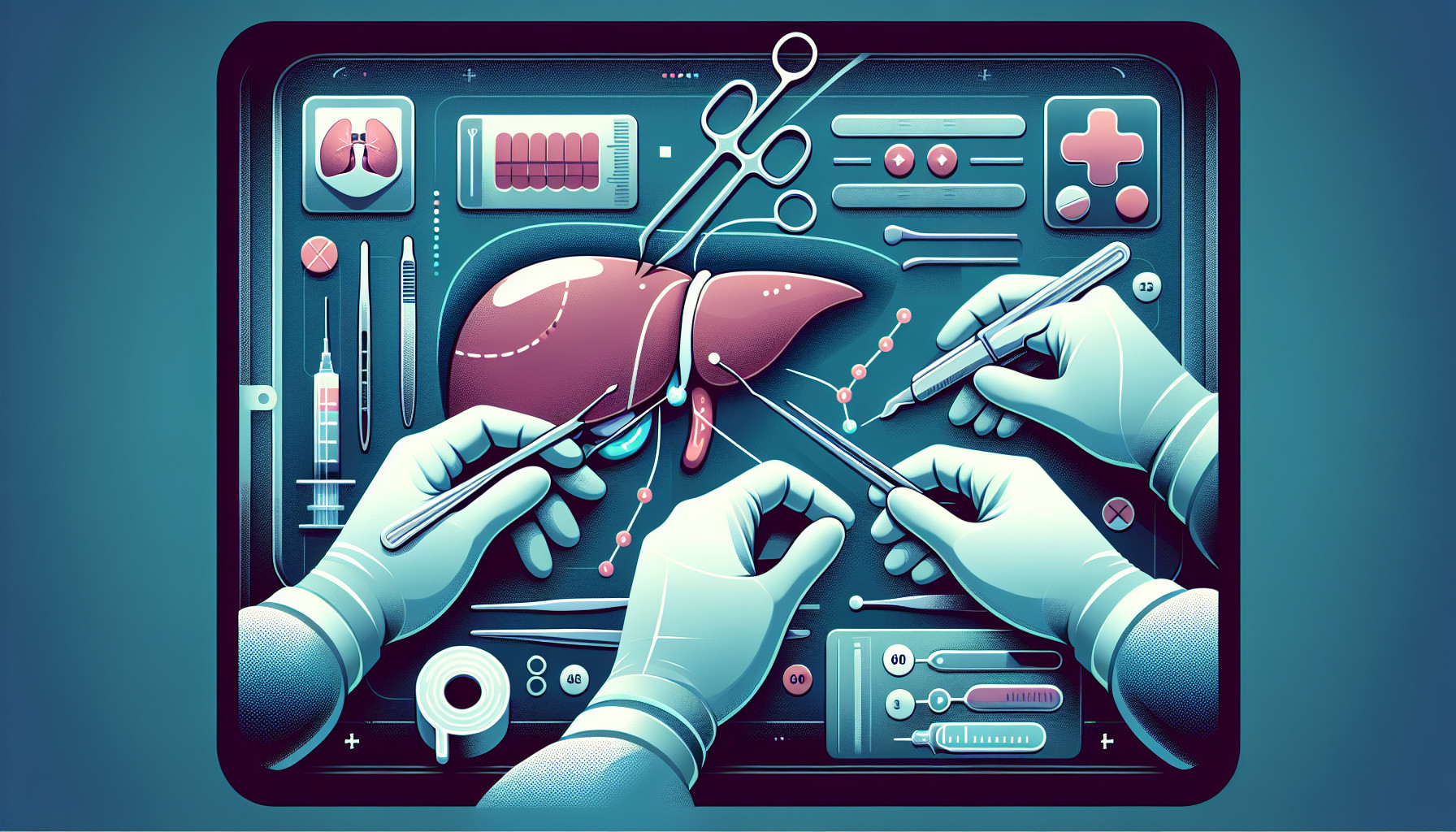Our Summary
This study examined the safety of performing a liver biopsy in children with acute liver failure. The procedure can be useful in determining the cause of the liver failure, but it is often avoided due to concerns about its safety.
The researchers looked at medical records from 2006 to 2016 of patients aged 0 to 17 who had acute liver failure and underwent a liver biopsy. They found 26 such cases, most of which were due to primary liver disease. The biopsies were mostly performed via the transjugular route (through a vein in the neck), with a smaller number performed percutaneously (through the skin) under ultrasound guidance or during a surgical procedure.
Before the biopsy, most patients were given blood products to prepare them for the procedure. Only one patient had a significant complication from the biopsy - bleeding that required a blood transfusion. Three other patients had a slight decrease in hemoglobin levels (a protein in red blood cells that carries oxygen), but no further interventions were needed.
The biopsy results helped to establish a diagnosis in 62% of the cases, and influenced treatment decisions in 9 of these cases.
The authors conclude that liver biopsy is generally safe in children with acute liver failure and complications are rare. Doctors should consider performing a liver biopsy, especially when it can be done via the transjugular route, as the findings can help guide diagnosis and treatment.
FAQs
- Is a liver biopsy safe for children with acute liver failure?
- How often did complications occur during the liver biopsies observed in this study?
- How helpful are liver biopsies in diagnosing and determining treatment for acute liver failure in children?
Doctor’s Tip
One helpful tip a doctor might tell a patient about liver biopsy is to make sure to follow all pre-procedure instructions provided by the medical team. This may include fasting for a certain period of time before the procedure and stopping certain medications that can affect bleeding. It is important to communicate openly with your healthcare provider about any concerns or medical conditions you may have that could impact the procedure. Additionally, it is important to follow all post-procedure care instructions to ensure proper healing and minimize any potential risks or complications.
Suitable For
Patients who are typically recommended for a liver biopsy include those with:
- Acute or chronic liver disease of unknown cause
- Suspicion of liver cancer or other liver tumors
- Monitoring of known liver disease progression or treatment response
- Evaluation of liver transplant candidacy
- Assessment of liver damage or fibrosis in conditions such as hepatitis C or fatty liver disease
It is important to note that the decision to perform a liver biopsy should be made on a case-by-case basis, taking into consideration the patient’s overall health, potential risks, and expected benefits of the procedure.
Timeline
In summary, before a liver biopsy, a patient with acute liver failure may undergo blood product administration to prepare for the procedure. The biopsy itself can be performed via the transjugular route, percutaneously under ultrasound guidance, or during a surgical procedure. After the biopsy, most patients experience minimal complications, with only a small number experiencing a slight decrease in hemoglobin levels or requiring a blood transfusion due to bleeding. The biopsy results can help establish a diagnosis in the majority of cases and may influence treatment decisions. Overall, the study found that liver biopsy is generally safe in children with acute liver failure, with complications being rare.
What to Ask Your Doctor
Some questions a patient should ask their doctor about liver biopsy include:
- Why do I need a liver biopsy?
- What are the potential risks and complications of a liver biopsy?
- How will the biopsy be performed (transjugular, percutaneous, etc.)?
- Will I need any special preparation for the biopsy?
- How long will the procedure take and will I be awake or sedated?
- How soon will I receive the results of the biopsy?
- How will the results of the biopsy affect my treatment plan?
- Are there any alternative tests or procedures that can provide similar information?
- What should I expect in terms of recovery after the biopsy?
- Are there any specific instructions or restrictions I need to follow after the biopsy?
Reference
Authors: Chapin CA, Mohammad S, Bass LM, Taylor SA, Kelly S, Alonso EM. Journal: J Pediatr Gastroenterol Nutr. 2018 Oct;67(4):441-445. doi: 10.1097/MPG.0000000000002096. PMID: 30028827
